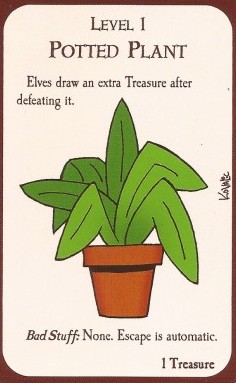 The ABCs of GMing
The ABCs of GMing
The ABCs of GMing is an ongoing series about the different skills and ideas needed to run a successful tabletop game.
Dedication
Any veteran tabletop gamer will tell you that merely just playing a tabletop RPG requires a level of commitment. While some groups (mostly of people at a younger age and in close proximity) tend to play their RPGs on the fly (“Hey, what are you guys doing tonight?”), most players will tell you that this is not the norm. Instead, most groups have to dedicate a specific time to get together and play, whether it be weekly, monthly, leap days, or any other set time schedule. When you’re simply a player, sometimes this time slot is all you really need to dedicate to your game, save for a few e-mail exchanges during the week, or some prep work when creating a character (character creation, backstory, etc.). The GM, however, does not have this luxury. While a select few GMs are able to run full games on the fly with very little prep work, this is not a common skill within the art. Playing in a tabletop RPG and actually GMing a tabletop RPG are two very different things, requiring dedication to make sure the game runs smoothly. Here are some tips to help make sure you are giving your game the attention it deserves.
#1. Plan Ahead
It’s not a wise move to get your friends together on a whim and say, “Hey guys, let’s play an RPG because I want to GM”, and then not have materials ready to go. Before you even ask your friends to create their characters, have specifics planned out. Before your players even go through the character creation process, you need to commit time to getting things in place first – craft your story arcs; create your main antagonists and allies; give detail to the setting your want to immerse your players in. There’s a good chance some of these things may change, but the level of work and detail that these tasks require is worth doing ahead of time. You can always revise later as needed.
The best way to keep yourself up to speed and dedicated to your tabletop RPG is to start off on the right foot. To do that, be as prepared as you can be before the first dice are rolled.
#2. Spend More Time On The Game Than Your Players
As the GM, you are the driving force behind the game. You are responsible for moving the game forward and progressing the players through your story. To do this successfully, make sure you have material for your players to advance through. As a GM, the regularly-scheduled gatherings with players to play your game is not enough. You have to take time between sessions to prepare for each and every meeting. You should be keeping ahead of your players in the storyline at all times.
What’s more, players always have a chance of bypassing parts or your story, or even going off on tangents you didn’t expect. (And they often do.) These are things you have to be prepared for. Make a commitment to take time between sessions to work on your game, whether it’s on a set schedule or with sporadic downtime.
#3. Include Your Players
As mentioned in previous articles, what you create and bring to your game is only part of the story. Your players will (and should) play an immense role on your game and its success. To keep your players actively interested, take the time to include them in your story. One of the biggest advantages of encouraging your players to be detailed with their characters is the ability for you to include them your storyline. Once your players have their characters and backstories created, you don’t have to immediately jump right into playing. Take time to work on their details, and find a way to weave them into your game. Ask questions about their storyline if you find something is confusing, or provide some support in areas of their character you think they could do a better job developing. By embedding your characters into the full setting of the game (instead of just being a prop for your story), they will have more fun exploring the world. Which, in turn, makes it more fun for you.
#4. Be Consistent And Reliable

“I know we’re supposed to be facing this arc’s villain in, like, 2 hours, but I have to cancel. It’s patch day, and King Dudeguy is getting a new jump move!”
Just like any other regularly scheduled plans, the same caveat applies to tabletop gaming. Inevitably there are always other things that will come up, and for whatever reason, players may miss sessions. Sometimes players may even want to take a night off to catch up on other things or spend time with other friends.
As the GM, however, you are held to higher scrutiny. If a player can’t make it to a session, it’s usually something that can be worked around. If the GM can’t make it, then the game isn’t going to happen.
Be respectful of the time commitment of your players. It wouldn’t be fair to say that you can never miss a session, but understand that you are held to a bit more responsibility when you are the person running the campaign. If you have to miss a game, give your players as much advance notice as you possibly can.
Try to avoid missing sessions because you “just don’t feel like it”, or not informing them until the last minute. Your players are also your friends, and when you waste your time, you are wasting theirs as well. If you do this too many times, they aren’t going to want to play with you as the GM, as they’ll want more consistency with their game. And they would be in the right. If that happens, they may want you as their GM even less in the future.
Next time, I’ll be talking about Energy, and how the energy and participation of your players is directly related to your own enthusiasm (and not to the standard gaming bag of Cheetos, contrary to popular belief). In the meantime, feel free to tell us about your own suggestions on dedication on our forums!

